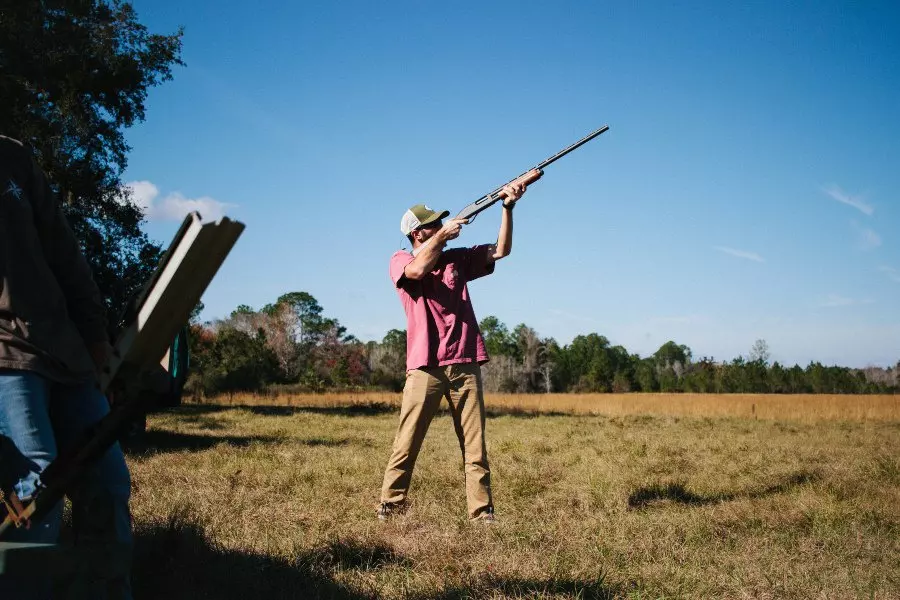
Do you have a favorite hunting weapon? The one you choose depends on the game you’re pursuing, the laws and regulations in your state, your personal preferences, and more.
Whether you’re not satisfied with the weapon you currently own or looking to increase the fun or challenge by trying something new, plenty of options are available. Here are six types of weapons to consider for your next hunt.
A Compound Bow
Hunters commonly use three bows: Compound, longbow, and recursive. The compound is the most popular of those three, mainly because it’s the easiest to handle and aim.
Compound bows use a leverage system to amplify the strength of the user. A series of cables and pulleys allows for fast drawing and accurate aiming. They’re also made from aluminum alloy, carbon fiber, fiberglass, and other durable materials resistant to cold and wet weather.
Another benefit of using a bow is that bow hunting season in Maine is longer and has better lottery odds compared to firearm hunting. Combining a compact bow with bow hunting camo increases your likelihood of remaining undetected. Depending on the types of hunts you favor, the old bow and arrow combination could be a winning one for you.
A Rifle
Rifles are long-barreled firearms with grooved barrels. The grooves make the bullets spin when fired, increasing their accuracy and distance traveled.
The world of hunting rifles is vast. Popular categories include bolt action, lever, and semi-auto. While conventional wisdom holds that bolt action rifles have the most accurate aiming, don’t discount semi-autos, which still offer reliable precision.
One of the most widely used rifles for hunting is the .22. It’s lightweight enough for almost any teen or adult to carry, aim, and fire while packing enough power to kill squirrels, rabbits, and other game roughly up to the size of a coyote.
Aiming remains accurate up to about 60 yards with a .22. When shooting targets at further distances, you’ll need to account for bullet drop, wind, and other factors.
A 12-Gauge Shotgun
While many shotguns are effective hunting weapons, the 12-gauge is the most versatile. Shotguns are used for hunting birds, rabbits, ducks, turkeys, and many other large and small game types.
The 12-gauge’s versatility is due to three components:
- Choke – The bore construction in the muzzle. It determines the spread of the shot.
- Shot – The cartridge containing the pellets is usually made from lead or steel.
- Barrel – Rifle and smoothbore are two popular types for hunting. Using a rifle barrel will load slugs (solid projectiles) instead of shots.
You can change each part depending on what you’re hunting. For instance, smaller steel shot such as No. 3 and No. 2 works well for hunting pheasants and ducks, while heavier shot such as No. 6 tungsten-iron is effective for turkey hunting.
By adjusting the barrel length, stock, and other elements, a 12-shotgun can comfortably and safely fit a wide range of people, including those with smaller frames. Additionally, shotguns are easy to maintain. Weapons maintenance is a crucial element of responsible ownership, so don’t forget to factor in the ease of regular cleanings into your decision.
A Handgun
Although not as common as hunting with rifles or shotguns, many people enjoy hunting with handguns. They’re lightweight and easy to transport. Hunters also find they have an easier time hiking long distances and navigating harsh terrain when carrying only a firearm.
Not all handguns work equally well for hunting. The best choices combine accuracy and power, such as bolt-action handguns, revolvers, and single-shot pistols. While some hunters use semi-automatics, doing so requires significant ability, as they’re the most challenging type to aim accurately.
Accuracy is the biggest hurdle when successfully hunting with a handgun. Most hunters equip their guns with either scopes or red-dot sights. Using a pistol with a long, heavy barrel also helps increase accuracy.
Check local laws before hunting with a handgun, as many states impose restrictions on magazine size, ammo type, carry ability, and more.
Hunting with a handgun is allowed with Maine’s big game hunting license. You can also carry a handgun when bow hunting, although you can’t use it to kill any game.
A Muzzleloader
If you’re looking for a new weapon for hunting, don’t overlook the classics. Muzzleloaders are the world’s oldest type of firearm, first created in the 17th century.
However, don’t let their history fool you, as these weapons are far from frail antiques. Modern hunters use muzzleloaders to kill birds, deer, elk, moose, and other wildlife found in Maine.
A muzzleloader is a firearm where the projectile, such as a shot or a metal ball, is loaded through the front of the gun. The most famous image of a muzzleloader is likely the musket, but many other types also exist. Modern muzzleloaders include shotguns, rifles, and handguns.
Muzzleloaders do pose some challenges compared to other hunting weapons. Reloading quickly is a skill that requires practice, and the range falls far short of what’s capable with a high-end rifle. However, many hunters find these “limitations” can increase the excitement of the hunt.
Another significant benefit is increased hunting opportunities. Many states allow muzzleloader hunting before firearm hunting season begins. Also, hunters with muzzleloaders might have access to more hunting areas.
A Crossbow
Crossbows combine elements from both bows and firearms. Essentially, a crossbow is a horizontal bow, called a prod, attached to a frame, called a tiller. It fires bolts instead of arrows, released by a trigger pull.
Crossbows are more accessible to aim and fire than a traditional bow, making them popular among those with limited strength and mobility, such as women, teens, and seniors.
Crossbow season varies considerably by state. In Maine, the general public can hunt with a crossbow during bear season and open firearm deer season.
An exception exists for hunters over the age of 65 or those with handicap hunting permits. They can hunt with a crossbow during archery season.
Wrap up
If you love hunting, there’s no need to limit yourself to one weapon. Choosing something new alters the challenge, extends the length of the season, and increases the fun.








